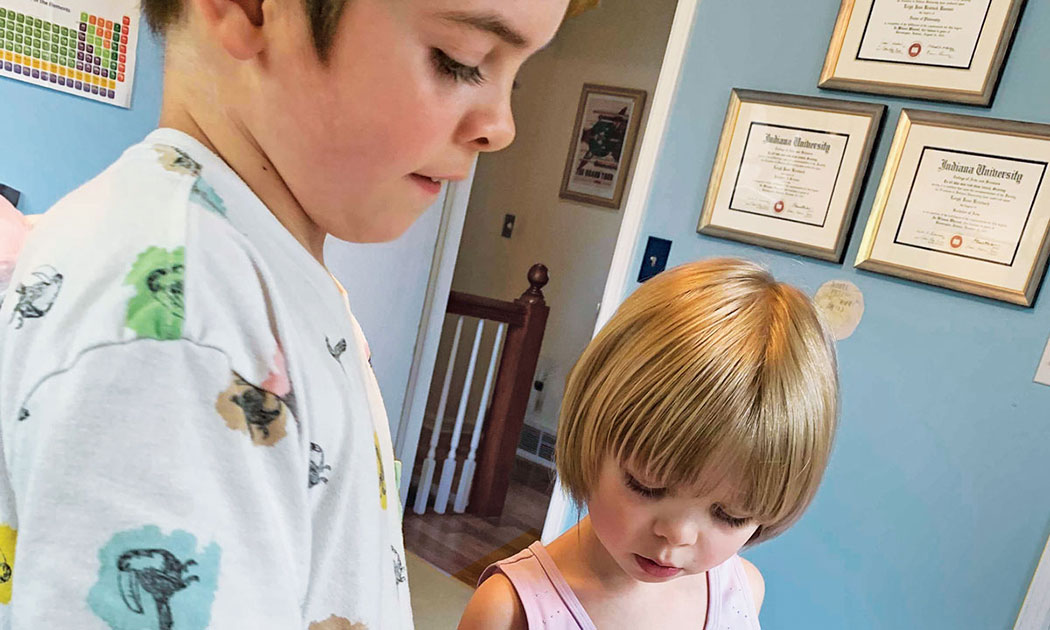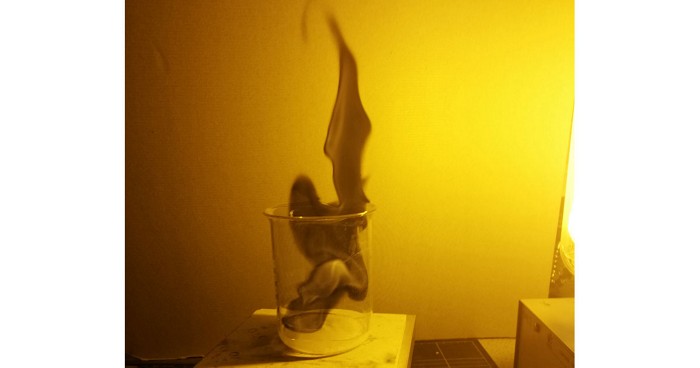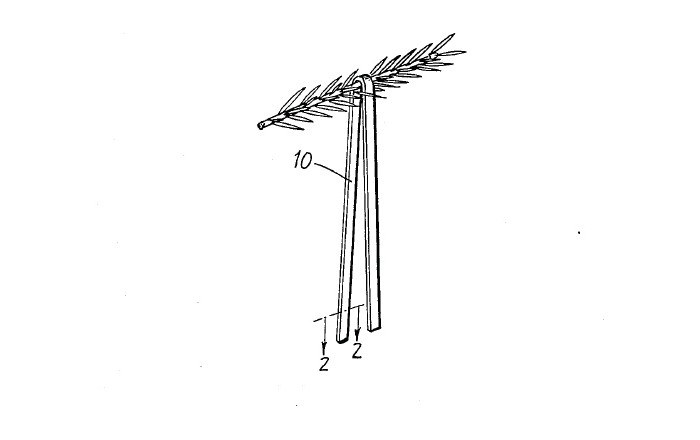Advertisement
Grab your lab coat. Let's get started
Welcome!
Welcome!
Create an account below to get 6 C&EN articles per month, receive newsletters and more - all free.
It seems this is your first time logging in online. Please enter the following information to continue.
As an ACS member you automatically get access to this site. All we need is few more details to create your reading experience.
Not you? Sign in with a different account.
Not you? Sign in with a different account.
ERROR 1
ERROR 1
ERROR 2
ERROR 2
ERROR 2
ERROR 2
ERROR 2
Password and Confirm password must match.
If you have an ACS member number, please enter it here so we can link this account to your membership. (optional)
ERROR 2
ACS values your privacy. By submitting your information, you are gaining access to C&EN and subscribing to our weekly newsletter. We use the information you provide to make your reading experience better, and we will never sell your data to third party members.
K-12 Education
44th International Chemistry Olympiad
For the first time in 20 years the U.S. hosts the competition, which this year includes teams from 72 nations
by Susan J. Ainsworth
July 16, 2012
| A version of this story appeared in
Volume 90, Issue 29

As athletes from nations around the world prepare to compete in the 2012 Summer Olympic Games in London later this month, high school students from most of those same countries are also in training for the 44th International Chemistry Olympiad (IChO), to be held on July 21–30 at the University of Maryland, College Park.
COVER STORY
44th International Chemistry Olympiad



Supported by a $2.5 million donation from Dow Chemical, the American Chemical Society and the university have taken on the gargantuan task of hosting the event, which engages high school students in exams and laboratory work to test their knowledge in chemistry theory and practice. It will be held in the U.S. for only the second time in its history; in 1992, IChO events were split between Washington, D.C., and Pittsburgh.
“This is an especially auspicious time to be hosting this event because of our nation’s focus on science, technology, engineering, and math education; innovation; and workforce development,” says ACS Executive Director & Chief Executive Officer Madeleine Jacobs. “We are excited about having nearly 300 of the best and brightest students in chemistry from 72 nations, ranging from Argentina to Vietnam, competing for medals, as well as about showing these aspiring scientists and engineers some of the most exciting and innovative scientific and cultural organizations in the Washington, D.C., area.”
Given the costs and complex logistics associated with hosting the event, ACS is “truly indebted to Dow’s generosity” in acting as the sole sponsor of the 44th IChO, Jacobs says. “I am eternally grateful to Dow’s CEO, Andrew N. Liveris, because it was his personal commitment to science education during the International Year of Chemistry in 2011 that made this gift possible.”
Dow’s donation will cover most of the events’ costs, which are expected to total $2.7 million. Residual expenses will be offset by fees paid by participating countries.
The University of Maryland is providing significant in-kind support by hosting IChO on its College Park campus and through its leadership of the event’s 15-member Scientific Committee. That committee has worked for more than two years to draft test questions for both the theoretical and practical exams—which together serve as the centerpiece of the event, according to Michael P. Doyle, professor and chair of the department of chemistry and biochemistry at the university. Doyle is cochair of the IChO Scientific Committee along with his department colleague Andrei N. Vedernikov, a professor and former IChO gold medalist. See page 18 for test questions from prior years’ olympiads, which demonstrate the exams’ level of difficulty.
Remarkably, planning for this month’s IChO began almost three years ago, when the IChO Steering Committee accepted the U.S. offer to host the 2012 olympiad, notes G. Bryan Balazs, an ACS councilor and immediate past-chair of the ACS California Section, who now serves on that committee as chair of this year’s IChO Organizing Committee. As chair, Balazs has coordinated ACS volunteer efforts surrounding the 44th IChO. Planning for the event has been led by Mary M. Kirchhoff, director of ACS’s Education Division, and Cecilia C. Hernandez, the division’s assistant director of endowed programs, including the olympiad program.
As host of IChO, ACS has been responsible for arranging lodging, meals, transportation, and entertainment for each of the event’s participants and attendees—a total of 650 people—for the full 10 days of the olympiad.
With a few exceptions, the participating nations will each send a team of four students. Qualifying student teams are typically chosen through a series of regional and national olympiads held in each country. For example, the four high school students who will represent the U.S. were selected after a nationwide competition, followed by an intensive two-week study camp for 20 finalists at the U.S. Air Force Academy in Colorado Springs last month (C&EN, June 25, page 11).
Accompanying students to next week’s competition will be two mentors from each country. Lichtenstein, Nigeria, and Serbia will be participating in IChO for the first time this year. In addition, several countries will be attending IChO as observers; countries are required to observe for two consecutive years before they can send a team to compete in the event. Representatives from El Salvador, the Former Yugoslav Republic of Macedonia, and Uzbekistan will be observing for the second year, while representatives from Georgia, Montenegro , and South Africa will observe for the first time. Through this process, those aspiring to compete in the olympiad learn the intricacies of the event and become familiar with the rigorous standards and rules for participation.
As is the case during every IChO, students and mentors are separated when they arrive in the host city, for test-security reasons, Hernandez says. In addition, students will be cut off from the use of cell phones and computers until testing is completed on Thursday, July 26. Students and mentors will be reunited after Thursday’s exam during a party that will be hosted by the French Embassy.
On a given day, mentors may be hard at work reviewing, translating, or arbitrating the scoring of the exams, while students may be testing or touring.
For the students, ACS has designed a full schedule of recreational and educational activities that will fill the time around the five-hour lab practical exam, preceded by a 30-minute lab safety presentation, on Tuesday, and the five-hour theoretical exam on Thursday, according to Hernandez.
Festivities will begin with the IChO opening ceremony at the University of Maryland’s Dekelboum Concert Hall on Sunday, July 22. Nobel Laureate Richard R. Schrock, a professor of chemistry at Massachusetts Institute of Technology, will serve as the opening keynote speaker. Sharing the podium with Schrock will be Maryland Gov. Martin O’Malley and University of Maryland President Wallace D. Loh.
Attendees will be welcomed via video by Nobel Laureate and Priestley Medalist Ahmed H. Zewail, a professor of chemical physics and of physics at California Institute of Technology, who is serving as president of this year’s IChO. Chair of the ACS Board of Directors William F. Carroll Jr. will serve as master of ceremonies.
The opening ceremony “may be the most exciting part of each olympiad,” notes J. L. Kiappes, a member of the 2004 U.S. olympiad team, who is now a member of the Steering Committee and the IChO Scientific Committee. In a ceremony full of pomp and circumstance, students, mentors, and organizers come together, and “you begin to really appreciate how so many people from all over the world have been preparing for this single week,” he says. “Teams often wear native costume, meet other students for the first time, and take pictures together. It’s refreshing to see the camaraderie and spirit of friendship that goes beyond nationality or politics.”
In the days following the opening ceremony, students will get a taste of the U.S. by attending a baseball game at Camden Yards, where the Baltimore Orioles will host the Oakland Athletics, and touring the National Aeronautics & Space Administration’s Goddard Space Flight Center.
They will also take a boat cruise out of Annapolis, Md.; have dinner and play games at Dave & Buster’s restaurant and arcade; and tour both the National Aquarium in Baltimore and the Maryland Science Center. In addition, students will watch a chemistry demonstration show by ACS President Bassam Z. Shakhashiri, visit Kings Dominion amusement park, go shopping, and compete in a “Chemistry Idol” competition, which will be modeled after the television show and talent competition “American Idol.”
Meanwhile, mentors will be embarking on their own busy schedule of events. After the opening ceremony, mentors from all participating countries will gather to examine the laboratory facilities where their students will take the practical exam, taking inventory of supplies that each student will need for the exam.
Later, mentors will meet to review the exam questions prepared by the Scientific Committee for this year’s competition. They will have an opportunity to lobby to reword or reject questions that they believe would be outside of the knowledge base of their students, or to request adjustments of grading methods.
This deliberation, which can last from two to six hours, “can be very heated,” according to Doyle. “That is what we are going to try to avoid this year. My role is to keep things moving in these meetings, making sure that people feel that they have been treated fairly.”
After mentors agree on a final slate of test questions, they then work to translate the test into the language used by their students. Translated tests are fed into an Internet program that ensures that no part of the answers has been incorporated into the questions.
When testing is complete, the IChO Scientific Committee members and their assistants will grade the exams. They will share the graded exams with each country’s mentors for their review. Mentors have the opportunity to challenge or question the grading of the individual exams in scheduled meetings with members of the committee. During that time, they might highlight a difference in notation used by their country or suggest that partial credit should be awarded on a question that was marked as incorrect. After any negotiated changes are made, the final grades are evaluated, revealing who will win gold, silver, and bronze medals.
The medals will be formally presented at the closing ceremony, which will be held on Sunday, July 29, at Georgetown University’s Gaston Hall in Washington, D.C. ACS President-Elect Marinda Li Wu will congratulate students on their olympiad performance, and ACS Past-President Bruce E. Bursten will preside over the closing ceremony. This event will be followed by a farewell party and banquet at the National Building Museum in Washington.
Orchestrating this year’s competition—and the many events surrounding it—has been complex. Among the many individuals and organizations supporting the effort, Sigma-Aldrich has donated the chemicals to be used in the lab practical. Other in-kind donations include calculators from Texas Instruments, molecular models from Molecular Visions, copies of the Merck Index from Merck & Co., backpacks from Nike, and personal care products from Procter & Gamble. In addition, ACS’s Chemical Abstracts Service is providing access to SciFinder for all IChO teams in advance of the competition; it is also providing hardcover journals and umbrellas. Bristol-Myers Squibb donated funds to offset expenses for preliminary Scientific Committee meetings that were held last year. Those who have pitched in toward the success of the 44th IChO recognize the value and benefits that result from their efforts.
Because the competition takes place on a level playing field, students who receive IChO medals bring a certain prestige to their home nations, Doyle says. “That achievement certifies that educators are in fact doing something right in their country in preparing students to be internationally competitive,” he adds.
“For me,” Kiappes says, “the olympiad was a truly life-changing experience. It really opened my eyes to what an international endeavor chemistry is.” He is currently enrolled in the Skaggs-Oxford Program, a Ph.D. program that is a collaboration between Scripps Research Institute in La Jolla, Calif., and the University of Oxford, in England. “I don’t think I would have actively pursued graduate studies outside the U.S. if not for the perspective provided by the olympiad.”
It’s hard to imagine that any IChO participant is unaffected by their immersion in an international, chemistry-focused world, even for a week. C&EN talked with several past chemistry olympians, and each credits their IChO experience with influencing their career path (see page 20).
“It is very exciting to see the dynamics and the enthusiasm of all who are involved in IChO,” says Doyle, who attended the 2011 IChO in Ankara, Turkey. “They are participating in something that will be vital to them all their lives.”
Zewail, too, sees great merit in the olympiad program, which will continue with competitions in Moscow in 2013 and Hanoi, Vietnam, in 2014. “The International Chemistry Olympiad is uniquely positioned for celebrating the beauty and cornucopia of chemistry with the best young minds,” he says. “By intellectually bonding with fellow students from all over the world, they form networks for the future.”






Join the conversation
Contact the reporter
Submit a Letter to the Editor for publication
Engage with us on Twitter